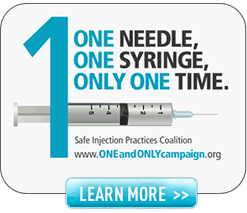Once again the journalist got it right; and not just right, dead center, hitting the issue squarely between the eyes. I am referring to the 4/15/14 (4/16/14 print) USA Today article by Peter Eisler highlighting the dilemma of addicted healthcare workers and drug diversion. http://www.usatoday.com/story/news/nation/2014/04/15/doctors-addicted-drugs-health-care-diversion/7588401/
Not only does Eisler get to the heart of the matter stating that addicted healthcare workers often go unnoticed enabling them to wreak havoc not on themselves but the patients they treat, but he makes it clear that the system is broken and far too many episodes of drug diversion are happening all around us. Truly the highlight of the article is his focus on the solutions.
Ah, such a relief to not just hear the cold facts but to have an emphasis on what we can do fix these problems. While the incidence of addiction in healthcare settings is roughly about what it is in society as a whole, the chance to do harm is far greater as the article so aptly points out. Addicted healthcare workers may not even know they are causing problems or get the help they require. Eisler states, “Much of the damage goes unnoticed or undocumented; systems to detect, report and address drug problems in health care settings are haphazard and limited.”
Moving forward, Kim New, National Association of Drug Diversion Investigators Executive Board member and Tennessee NADDI Chapter President, my esteemed partner in the fight to end drug diversion, articulates what steps can be taken. Kim emphasizes that drug diversion is both an addiction issue as well as a law enforcement issue. She suggests the need for more stringent reporting standards to include both state or federal regulatory agencies and law enforcement. Kim also suggests the need for immunity provisions for healthcare workers so they can better aid in drug diversion or other patient safety events.
None of this is new information. This is something I blogged about after our January meeting with HHS in our national drug diversion action plan.
I would be remiss if I did not also applaud the brave healthcare workers who came forward to tell their stories. While their family and friends may have known their tales, I find it the most selfless act to go public in such a big way. I am inspired to hear of not only their recovery but of their willingness to give back, to help educate others who might find themselves in a similar situation.
Often I will say, “It takes a village!” And for this reason combining efforts to most effectively move forward with a strategy to not only educate but also fix a very broken piece in our healthcare system is crucial for all of our safety. With the help of articles like this, bringing to the forefront an old problem, we start a chain reaction effect. The more knowledge we espouse, the more questions we can ask, the better treatment we will receive.
Perhaps, this article will catch the eye of a lawmaker and legislation might be written to help us better track and register healthcare workers so errant acts follow them even state to state. Maybe, healthcare settings will open their eyes a little wider and begin to act more urgently on the red flags they see with employees. Hopefully, fellow healthcare workers will pay closer attention when something seems off with a colleague and understand the proper channels to take to get them the help they need.
It is for the sake of safety, after all. No one should have to be told their loved one did not get the pain medication they so desperately needed because their medication went missing. Letters should never have to go out alerting patients that they may be one of many who might have been exposed to a deadly infectious disease. And perhaps, we can help those thousands of healthcare workers addicted to narcotics and give them a second chance to help others. I see a future in which this is possible. Do you?


